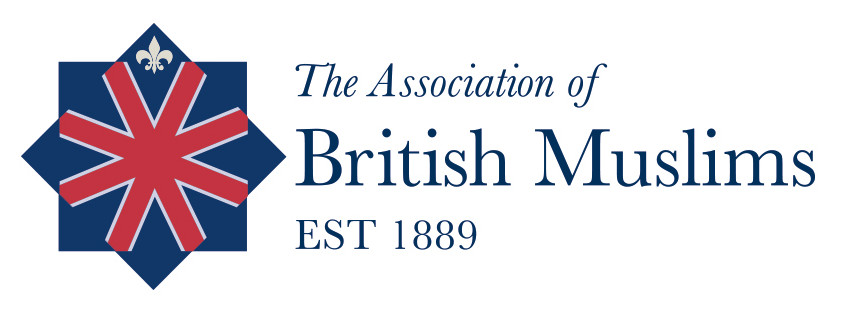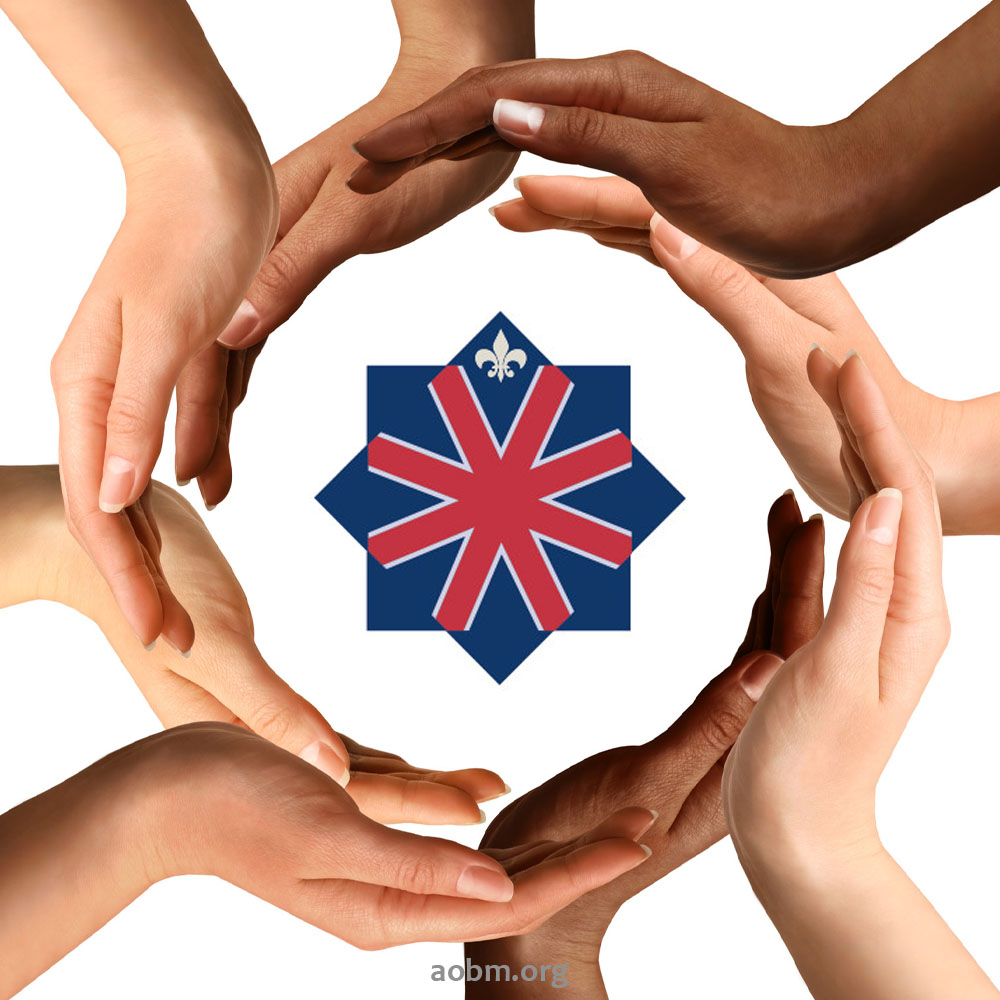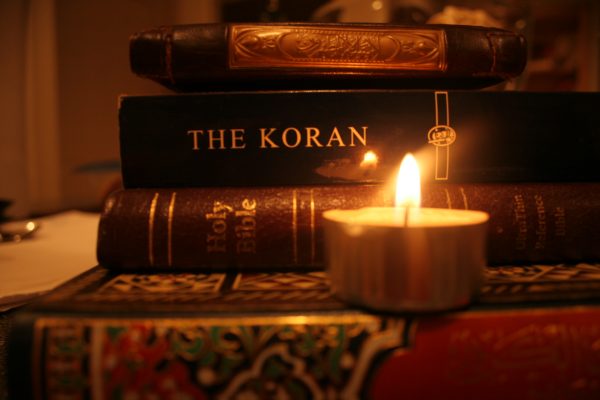
“Hold fast, all together, by the rope of Allah and be not divided… He united your hearts in love…”
~ Holy Quran 3:103
Recently, a few Muslims have approached me with the suggestion that the Association of British Muslims, the United Kingdom’s oldest Muslim organisation founded in 1889, should merge with other national Muslim organisations, for the sake of unity.
When I’ve enquired further, as to why they think we should do this, the reason given is because we should present a united front. The idea being that Muslims here in the United Kingdom and internationally should be united; the implication being that many of the problems faced by Muslims both in the United Kingdom and around the world are due to a lack of unity.
Now, on the surface, this might appear to be a good suggestion… Surely, everyone desires unity. How nice would it be to live in a world without conflict, where everyone is supporting each other? Obviously, that would be delightful. I for one would love to see our Human Family move in a more positive, harmonious direction. However, before we get ahead of ourselves, what is it that these individuals meant by ‘Unity’ and being ‘United’?
According to the Oxford Dictionary, Unity is defined as:
1. The state of being united or joined as a whole.
‘European unity’
‘ways of preserving family unity’
1.1 The state of forming a complete and harmonious whole, especially in an artistic context. ‘the repeated phrase gives the piece unity and cohesion’
1.2 count noun A thing forming a complex whole.
‘they speak of the three parts as a unity’
2. Mathematics
The number one.
‘the slope of each dotted line is less than unity’
3. count noun Each of the three dramatic principles requiring limitation of the supposed time of a drama to that occupied in acting it or to a single day (unity of time), use of one scene throughout (unity of place), and concentration on the development of a single plot (unity of action).
Definition 1.1 refers to “forming a complete and harmonious whole”, if what is meant is this kind of unity, that would indeed be a good thing. But harmony will only be achieved though diverse people working together to achieve it, and in order to do that, they must be respectful of one another, and to different approaches to Islam. The question is; how many advocates of unity have really thought this through, and intend to build harmonious respectful relations with people who hold different beliefs and ideas to themselves?
Building respectful and harmonious relations requires work, it requires respect and compromise, it requires not being too dogmatic and appreciating diversity. When people genuinely respect each other, when they don’t try to foist their beliefs on others, and appreciate people for who they are, we have the beginnings of a basis for successfully working together, as a team. When this is nonexistent, there’s no chance of that ever happening!
When people suggest we be united, that we present a united front on issues of common concern, they must realise you need to already have this respectful approach in place. We can’t merely give an impression of unity, people will inevitably see through a facade; if not initially, then after a while the reality of the situation will become apparent to them, and of what real value is that kind of empty “unity”? In addition, it assumes all Muslims have the same concerns, beliefs, and ideas.
We should ask ourselves what it is we are uniting for and what we are uniting around. Just because two people share a religion, doesn’t mean they can be united. Consider two individuals, one who is virtuous, being honest, decent, and respectful; now consider another who is not virtuous, is dishonest, indecent, and disrespectful. Both could be of the same religion. We can question how well they understand and practice their religion, but that is another matter entirely! Both these individuals claim to be of the same religion. Until they get to know each other, the virtuous one might not realise the character of the other… But once he does, how can they be united? Conversely, two virtuous individuals can work together, regardless whether they share the same religion or not.
This my friends is the problem, many Muslims want unity, but they themselves don’t live by the ideals of the Quran and our Prophet, peace be upon him, and some don’t even appear to try… How therefore can Muslims be united, when they already hold a concealed knife to the back of their brothers or sisters in Islam? That is the reality of a significant number of Muslims today; too quick to judge, too quick to assume apostasy, and make takfir (excommunication) on their brothers and sisters in Islam. Some extremists even go further and dig the knife in, quite literally…
Ultimately, we must deal in realities, or we have nothing to present of any value or strength. If the reality is disunity, we must address disunity. We cannot feign a unity that doesn’t exist. We need to ask ourselves what are the causes of this disunity? From where does this disunity arise? What can we do to resolve this disunity?
At the Association of British Muslims, this is something my colleagues and I analysed when Mohammed Abbasi and myself were appointed to run the Association 8 years ago, and we have been doing outreach that has at least to some extent, addressed the situation. But there is still so much more to be done, and we will continue to improve inclusion and ensure the Association is as diverse and reflective of the true diversity of British Muslims as is possible. In addition, we actively encourage other organisations to read and reflect upon our Principles and to do the same.
No one organisation can claim to speak on behalf of all British Muslims, especially if their approach to Islam is within very limited parameters. British Muslims, and indeed Muslims internationally, are of different denominations, madhabs, tariqats, languages, cultures, and ethnicities. Unless British Muslim leaders respect and appreciate this diversity, they cannot reflect it in what they say and do… they will not therefore have the backing of all, or even a majority, of British Muslims.
What organisations can do is to be as balanced as possible, and to encourage inclusion. In this vein, the Association of British Muslims is non-sectarian; our core team and our activists include Muslims from a diverse range of backgrounds and approaches to Islam. We have always been respectful of diversity, and see this very positively, as a strength.
Having multiple British Muslim organisations is not the problem or the cause of disunity. The disunity already existed in the hearts and minds of Muslims. Once we effectively address that, having multiple Muslim organisations will prove to be a strength and certainly not a weakness.

Paul Salahuddin Armstrong
Co-Director, The Association of British Muslims


